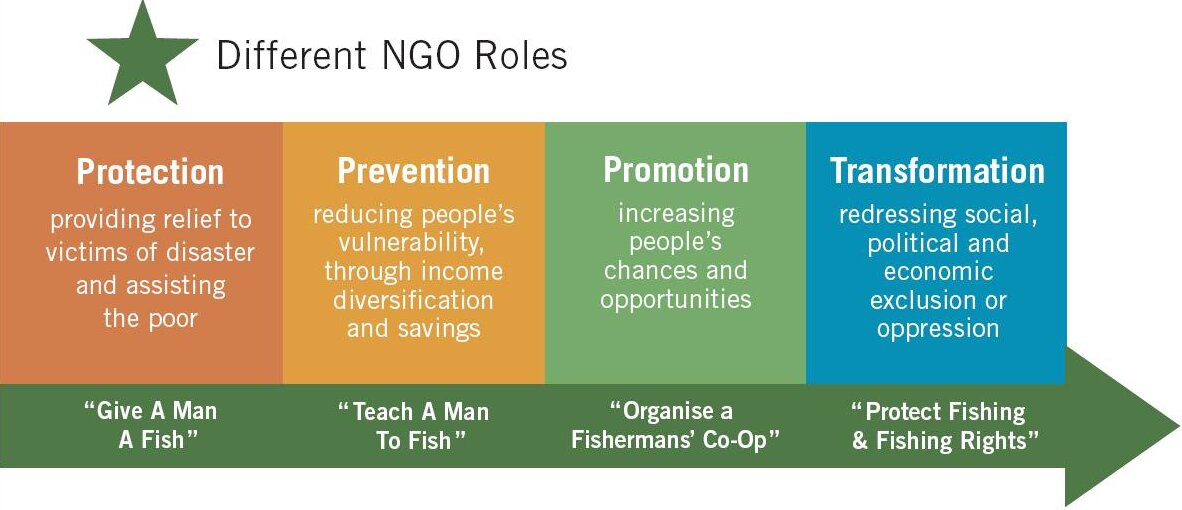Role of NGOs in Indian Democracy
India has nearly 3.4 million non-governmental organisations (NGOs), working in a variety of fields ranging from disaster relief to advocacy for marginalised and disadvantaged communities. There the role and responsibilities are immense in developing country like India, which can listed as follows:
- Bridging The Gap: NGOs endeavour to plug gaps in the government’s programmes and reach out to sections of people often left untouched by state projects. For example, providing aid to migrant workers in Covid-19 crisis.
- Also, they are engaged in diverse activities, relating to human and labour rights, gender issues, healthcare, environment, education, legal aid, and even research.
- Role of an Enabler: Community-level outfits and self-help groups are critical for bringing any change in the ground.
- In the past, such grass roots organisations have been enabled by collaborations with bigger NGOs and research agencies that have access to foreign funding.
- Acting as a Pressure Group: There are political NGOs that mobilise public opinion against government’s policies and actions.
- To the extent such NGOs are able to educate the public and put pressure on public policy, they act as important pressure groups in a democracy.
- They also mobilize and organize the poor to demand quality service and impose a community system to accountability on the performance of grassroots government functionaries.
- Role in Participative Governance: Many civil society initiatives have contributed to some of the path-breaking laws in the country, including the Environmental Protection Act-1986, Right to Education Act-2009, Forests Rights Act-2006 and Right to Information Act-2005.
- Acting as a Social Mediator: The social inter-mediation is an intervention of different levels of society by various agents to change social and behavioural attitudes within the prevailing social environment for achieving desired results of change in society.
- In Indian context wherein people are still steeped in superstition, faith, belief and custom, NGOs act as catalysts and create awareness among people.
Issues Emanating From NGOs
- Lack of Credibility: During the last few years, numerous organisations have mushroomed which claim to work for the cause of helping the poor.
- Under the garb of being an NGO, these NGOs often mint money from donors and are also involved in money laundering activities.
- There is nearly one NGO for every 400 people in India. However, not every NGO out there is engaged in serious social welfare work. Many are fraudulent and many are there without much serious intent.
- Lack of Transparency: India’s disproportionate number of NGOs and the sector’s lack of transparency and accountability is clearly an issue that needs reforms.
- Further the allegations of corruption against NGOs be ignored. In the past many NGOs were blacklisted after being found to have indulged in misappropriation of funds.
- Undermining Development Activities: A report by India’s Intelligence Bureau accused NGOs such as Greenpeace, Cordaid, Amnesty, and Action Aid for reducing India’s GDP by 2-3% per year.
